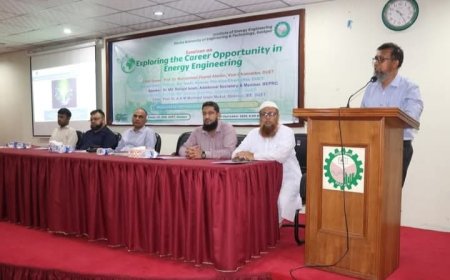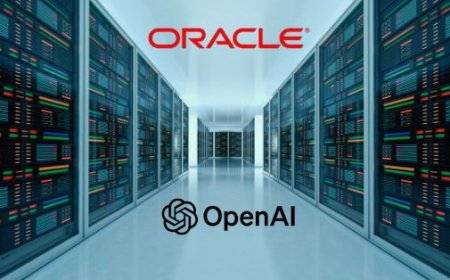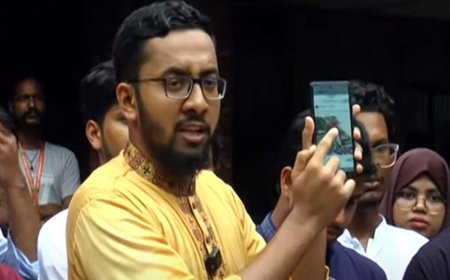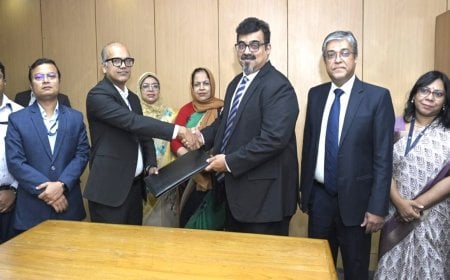Pricing will become more flexible: Faiz Ahmad Taiyeb Speaks on Starlink Satellite Internet in Bangladesh

In an conversation with media, Faiz Ahmad Taiyeb, Special Assistant to the Chief Adviser on Posts, Telecommunications, and ICT, detailed the groundbreaking launch of SpaceX’s Starlink service in Bangladesh. Under the direct supervision and initiative of Chief Adviser Dr. Muhammad Yunus, the satellite-based internet service marks a historic leap for the nation’s digital infrastructure. Taiyeb elaborated on regulatory frameworks, accessibility, affordability, and the vision behind Starlink’s integration into public welfare.
Q: What is Starlink’s business model in Bangladesh? How does the government benefit from it?
A: Starlink defines its own business model, operating through direct-to-customer and enterprise channels. For this, we have provided regulatory guidelines and NGSO guide licensing. Every year, we will receive specific fees from them. However, we requested that they accommodate our government enterprises—Bangladesh Submarine Cable Company Limited (BSCCL) and Bangladesh Satellite Company. A memorandum of understanding has already been signed with the satellite company. As a result, Bangladesh Satellite Company is now acting as a licensed local distributor. The goal is to create inclusive, accessible, and scalable connectivity solutions.
Q: Given the high prices of Starlink packages in Bangladesh, will the government ask for customized plans?
A: That’s a question best answered by Starlink representatives. However, we’ve observed that the package rates in Bangladesh are already lower than in Sri Lanka. We believe that as use cases expand—particularly in coastal and remote areas currently lacking high-speed internet—pricing will become more flexible. Compared regionally, our prices are already lower than Sri Lanka’s.
Q: Can you confirm the current number of Starlink subscribers in Bangladesh?
A: At this stage, we can't provide an exact figure since the service is still in its early phase and onboarding is ongoing. Starlink can give the precise number. We’ve also faced certain legal and tax-related complications, which have prevented us from connecting many potential users. We’re working to resolve those. BTRC will release the data when available.
Q: Why is the official launch of Starlink scheduled for July 18?
A: Although technically the service was soft-launched earlier when the license was issued, today marks its official inauguration. We chose July 18 intentionally. On the night of July 17, 2024, the internet was shut down to suppress a massive crackdown. This launch is a declaration: our government—and no future government—will ever shut down the internet again. We want to assure the youth that no one will be left unconnected. We are reaffirming that such shutdowns belong in the past.
Q: What is the current status of the individuals involved in last year’s internet shutdown?
A: Investigations are ongoing. The minister at that time is in jail. The shutdown was executed under their directives. Many stakeholders of the former autocratic government, including the then Prime Minister and several ministers, are imprisoned and have been taken on remand multiple times. Naturally, this matter has surfaced during interrogations.
Q: Starlink devices are expensive for the average Bangladeshi. Is there any plan for local manufacturing or ensuring security in imported devices?
A: There’s no concern regarding device safety. These consist of a traditional dish and router, which adds to the cost. But many of the mobile phones in our hands cost even more. Since the hardware is designed for community connectivity, a single dish can serve many users in markets, co-working spaces, or rural areas. Think about how much internet is delivered through remote mobile towers; one Starlink dish can match that alone. Entrepreneurs can share and distribute access. There’s no reason to call it overpriced. There is also no risk of incidents like the Pager case.
Q: Can Starlink support rural connectivity, healthcare, and education?
A: Yes, rural schools, mobile clinics, and remote areas will now have reliable, high-speed internet access. Some NGOs in Bangladesh are already offering diagnostic and medical services from containers—those can now deliver telemedicine via Starlink. We also plan to send mobile ICT labs to haor and baor regions, and they’ll remain connected through Starlink. In short, we introduced Starlink to connect citizens who were previously left behind.
Q: What is the government’s long-term plan for satellite internet? Will Bangladesh’s satellite company be a stakeholder in Starlink? How will we ensure national security?
A: It is our government's principled decision that we will never shut down the internet. We’re drafting amendments to the telecommunications law to ensure future governments can’t do so either. The law is complex, which is why it's taking time. We hoped to complete it within a year. Still, we admit it’s delayed. We’re taking our time to ensure that the law makes internet shutdowns impossible. BTRC is developing a regulatory and legal framework to prevent any government from cutting off nationwide internet access and to safeguard citizens' connectivity rights.
Q: Will Starlink deliver equal service quality across all regions?
A: Starlink is neutral toward users and locations—whether city or village, hill or plain. It offers equal service quality nationwide.
Q: Are other companies entering the satellite internet sector in Bangladesh? Has the VAT-tax issue been resolved?
A: Yes, four other companies have expressed interest. OneWeb, for instance, wants to operate but only in the B2B (corporate) segment. This competition will benefit users through better service and innovation. As for VAT and tax complexities—Starlink works with agility and flexibility. We had to coordinate with many government entities, which took time to consolidate. That’s why there was a delay.
Q: Elon Musk was reportedly invited to Bangladesh. Will he come? Will foreign investment increase?
A: If Elon Musk visits Bangladesh, it will be a tremendous source of inspiration for our youth. Today, everyone wants to be an entrepreneur, and Elon Musk is one of the world’s greatest. Starlink has already purchased 200 gigabits of bandwidth from our submarine company. That’s foreign direct investment in action. I believe Starlink’s arrival will boost Bangladesh’s branding on the global 'Ease of Doing Business' index.
Q: What is the status of the national telecom policy? Will elections affect its progress?
A: Telecommunications is a technological matter, not a political one. We’re working to simplify our licensing processes and align them with global standards. It’ll be completed soon.
Q: Will Starlink’s presence make doing business in Bangladesh easier?
A: Yes. Better connectivity will increase FDI, support innovation, and attract global companies to Bangladesh’s digital economy.
Q: How will the government collect revenue from Starlink?
A: The government will earn revenue from each Starlink device through licensing fees, VAT, and gateway access charges. Additionally, BSCL will act as a retail partner, helping with local distribution and compliance.
Q: Is there any agreement to support educational institutions?
A: Not yet. But we had discussions today with Lauren Dreyer and Richard Griffiths, where this topic came up. As part of our Sustainable Development Goals, we must connect every school with the internet by 2030. We’ve expressed interest in engaging with them. Talks are underway to explore potential discounts and subsidies for schools, university dormitories, nursing colleges, and public institutions. We’ll have more to say on that later.
Q: Starlink had committed to establishing a Bangladesh gateway within 90 days. With 60 days already passed, will it be done in time?
A: Yes, gateway work is ongoing. As I mentioned earlier, we faced some delays due to VAT and tax complications. In a few more days, we’ll know its current status. As far as we know, construction has begun.









































































































































































































